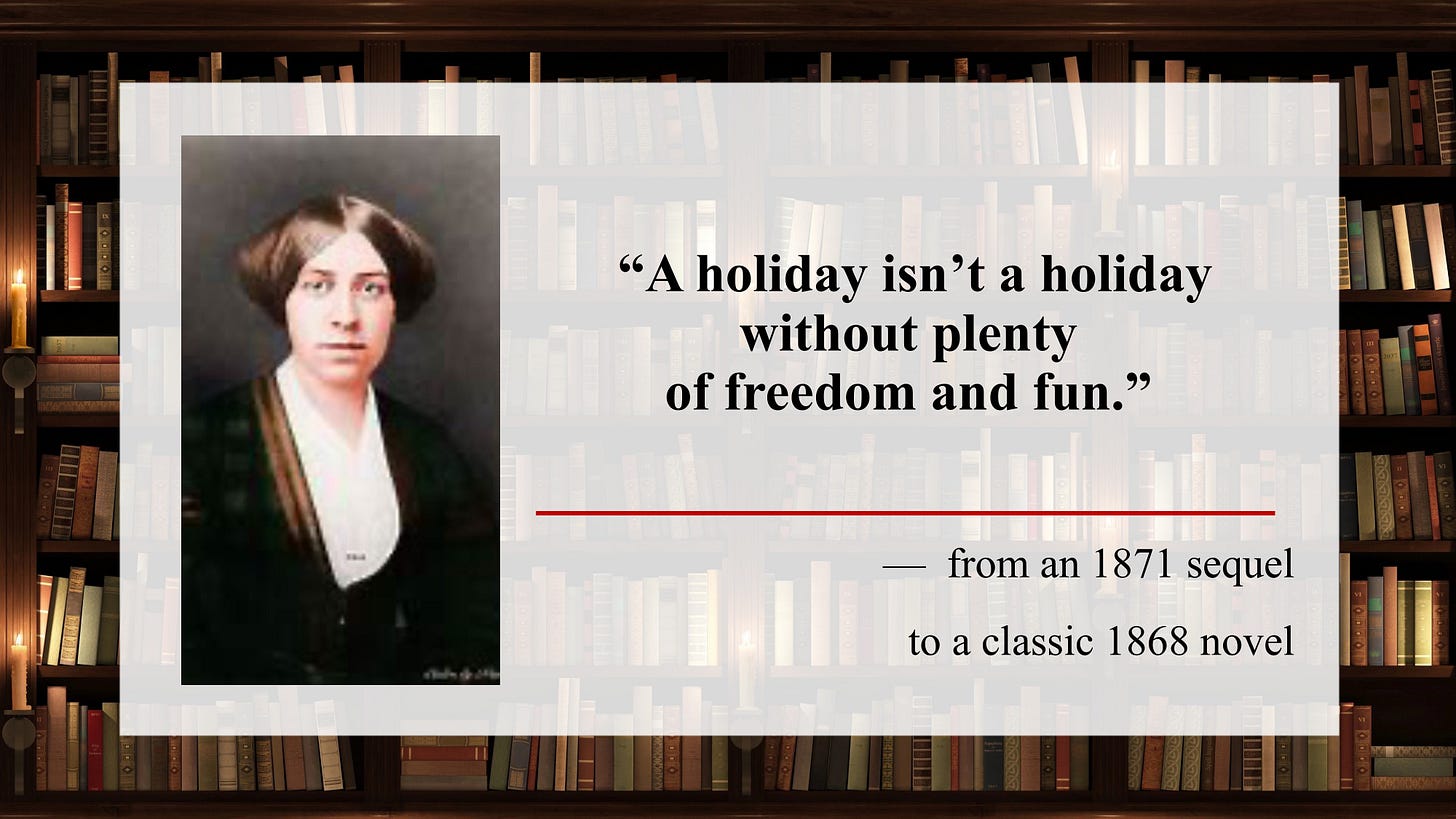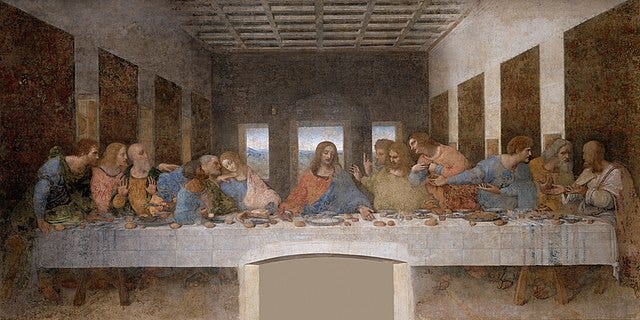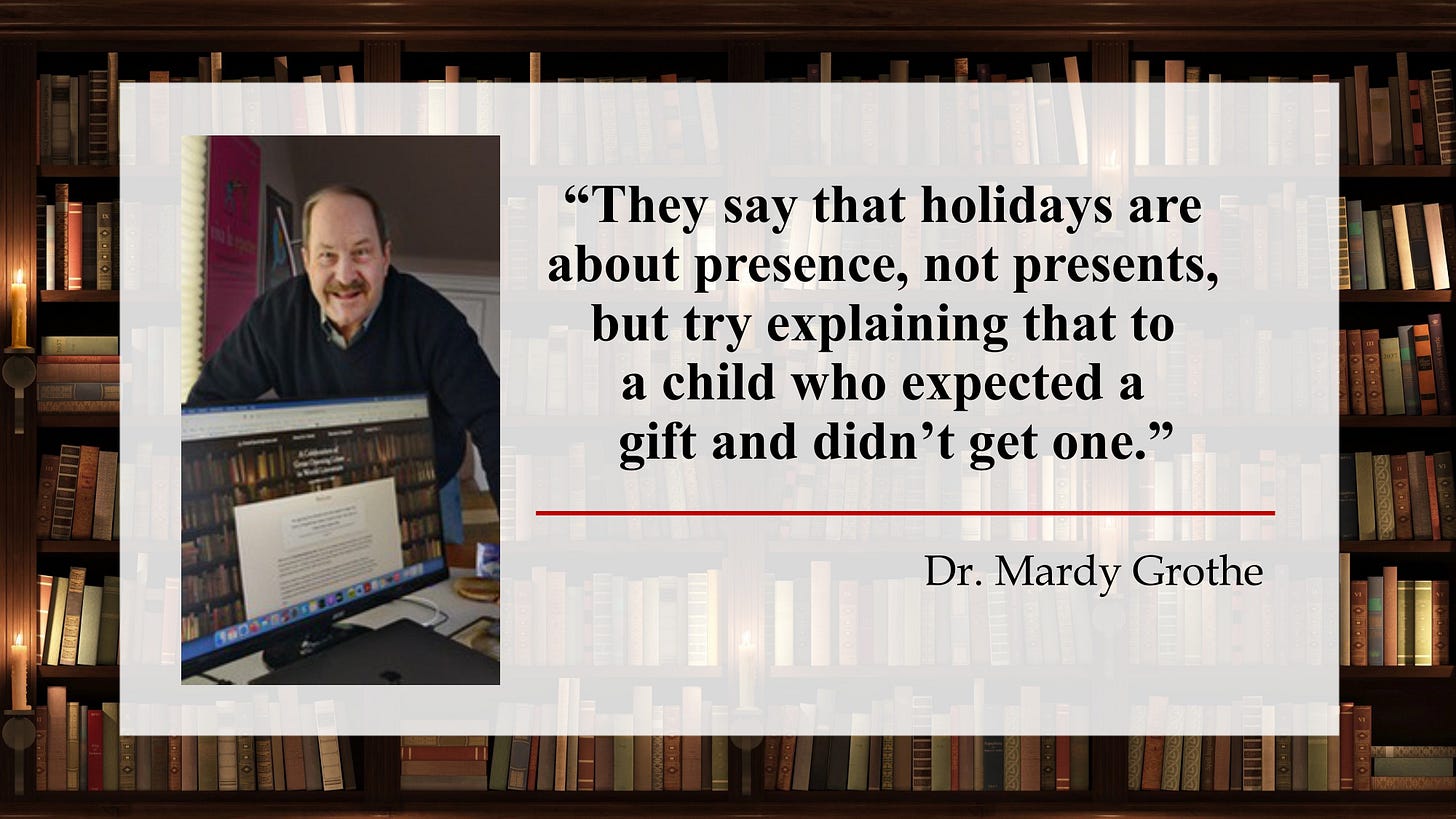Dr. Mardy's Quotes of the Week ("Holy Days & Holidays")
Dec. 22—28, 2024 | THIS WEEK'S THEME: “Holy Days & Holidays"
In a lovely coincidence that occurs every dozen years or so, this year the first night of Hanukkah—or Chanukah, for some of you—will take place on the evening of December 25th, Christmas Day (the next time this is expected to happen is 2035).
The Jewish calendar is lunar, which means that, when compared to the Gregorian calendar, the exact dates of each year move around a bit. Typically, Hanukkah falls between late November and late December—and when the two traditions fall on the same day, it can lead to some unique celebrations, often humorously dubbed “Chrismukkah.”
No matter which Holiday you celebrate—and even if you choose to celebrate neither—I’d like to send warm Holiday wishes to all my subscribers. I love having you in my life, and, truly, things wouldn’t be the same without you.
In our house, we’ll soon be celebrating the eight days of Hanukkah—and, as I’ve done for the past 33 years, I’ll stand in respectful silence as my bride lights our menorah each night and recites the Hebrew prayers she first learned as a young girl.
Our Christian friends, of course, will be celebrating the birth of Jesus Christ. The exact date of His birth is unknown, but by the 4th century, December 25th was the accepted date throughout Europe, and it has remained so ever since. Scholars believe that early Christian leaders selected the date in part to coincide with pagan festivals celebrating the winter solstice.
Throughout the Roman Empire, the winter solstice was called “the birthday of the unconquered Sun,” and the large public celebrations provided perfect “cover” for the many early Christians who wanted to celebrate Christ’s birth without drawing undue attention to themselves. As the centuries passed, winter traditions from Germanic and Celtic cultures were integrated into the Christian celebration, giving us the festive, gift-giving holiday we know today.
Other religious and ethic groups have their own distinct ways of ending one year and beginning another, and whatever your particular ritual, I suggest only one thing for you this year: as you gather together with friends and family, try to be the most loving, caring, and compassionate person in the room.
Opening Line of the Week
If the central purpose of an opening line is to keep the reader interested and involved, this one does that job superbly well. Who wouldn’t want to know how an unusual Liturgical coincidence during Columbus’s first year of life would ultimately result in his historic 1492 voyage in search of a westward sea route to Asia?
For more on Marlowe’s fictional autobiography of Columbus, and more than 2,000 memorable opening lines from every genre of world literature, go to: www.GreatOpeningLines.com.
This Week’s Puzzler
On November 29, 1832, this woman was born in Germantown, Pennsylvania. She spent most of her life in Boston and nearby Concord, growing up in the company of such luminaries as Ralph Waldo Emerson and Henry David Thoreau, both of whom were friends of her father, a pioneering-but-penniless educator.
From an early age, she was determined to become a writer, but she went to work early to help support her family. Her first book, Flower Fables, was published in 1854, but the sales were so dismal that she earned only about $35 in royalties. Many aspiring writers might have given up, but the failure only fueled her fierce determination. Four years later, in an 1858 entry in her journal, she wrote that she was “resolved to take Fate by the throat and shake a living out of her.”
After a brief attempt at teaching, she volunteered as a nurse in the Civil War, where she contracted typhoid fever (she never fully recovered). Her letters home were eventually published as Hospital Sketches in 1863, bringing her critical attention, but not much remuneration.
Her most famous work—a true literary classic—was an 1868 novel inspired by her own life experiences (the protagonist was largely autobiographical and the rest of the characters were based on her sisters and her mother). In an 1871 sequel to the work, she had a character say:
Who is the author? What is the title of the 1868 American classic? And what is the title of the 1871 sequel?
(Answers below)
What Does a Holiday Mean to You?
Let’s begin this week with the Oxford English Dictionary’s definition of holiday. After reading it, take a moment to reflect on the words. If you’re anything like me, the definition will quickly stir a particular thought in your mind.
Today, all around the world, many of the most important holidays are not religious at all, but secular—as we see in America with New Year’s Day, Independence Day, Labor Day, Memorial Day, Veterans Day, and Thanksgiving Day. And, of course, the planet’s most widely celebrated holiday—Christmas Day—is a potent combination of both the religious and the secular.
The American Heritage Dictionary provides a more up-to-date definition:
“A day on which custom or the law dictates a halting of general business activity to commemorate or celebrate a particular event.”
The AHD definition is lacking as well. First, it completely fails to acknowledge the religious nature of holidays in world history. And second, it completely ignores the etymology of the word. Holiday, you see, comes from the Old English term hālig dæg, which literally means “holy day” or “sacred day.” The earliest English language dictionaries reflected this historical reality, commonly defining a holiday as “a day dedicated to religious observance.”
The word hālig also meant “set apart,” which aligns nicely with the early Christian practice of setting aside specific days for worship, prayer, and the commemoration of significant events, such as Epiphany, Easter, Pentecost, Palm Sunday, and Christmas.
The Christian practice of establishing holidays piggybacked perfectly on the already well-established Jewish tradition of setting aside major “holy days,” including Shabbat (Sabbath), Pesach (Passover), Rosh Hashana (New Year), Yom Kippur (Day of Atonement), and, of course, Hanukkah (Festival of Lights).
Over the centuries, religious holidays have routinely been depicted by history’s great artists, but few are more famous than a massive mural—15 feet by almost 29 feet—in the Convent of Santa Maria delle Grazie in Milan, Italy. The painting shows Jesus and his twelve apostles at what we now call “The Last Supper.” According to Luke 22:7 (KJV), Jesus has his own way of referring to the meal, saying to Peter and John: “Go and prepare us the passover, that we may eat.”
In “setting apart” special days or times for religious worship, Jews and Christians were doing nothing particularly new or novel. They were simply following the lead of the many ancient kingdoms which preceded them.
For example, in the 26th century B.C.—that is, a full 2,600 years before the birth of Christ—ancient Egyptians celebrated the arrival of the new year with an “Opening of the Year” festival that had astrological as well as seasonal relevance. It occurred at the first appearance of the star Sirius in the pre-dawn sky and at the beginning of the agriculturally invaluable flooding of the Nile River, which brought fertile silt to the kingdom’s farmlands.
Around the same time in ancient China, the beginning of the agricultural season was marked by a spring festival that was the forerunner of all later “Chinese New Year” celebrations. The holiday included offerings to a variety of deities as well as prayers for a bountiful harvest. Not surprisingly, the holiday also had a heavenly significance, occurring on the day when the Sun was exactly at the celestial longitude of 315 degrees. As a footnote, it is also important to remember that many centuries later—around the 10th c. A.D.—Chinese New Year festivals inspired the invention of fireworks, now a staple of holiday celebrations all around the world.
I could provide more examples, but let me bring this week’s reflections to an end by posing a simple question. What can we conclude from the fact that, for the past 5,000 years, festivals and holidays have been an integral feature of human life?
In my view, holidays exist because they fulfill some of our deepest psychological needs, including: (1) attempting to find meaning and purpose in life; (2) making sense out of complex and often mysterious aspects of existence; (3) establishing a sense of community; (4) providing a respite from the taxing demands of a life that, as Thomas Hobbes suggested, can be “nasty, brutish, and short”; (5) experiencing joyful and uplifting activities that help to rejuvenate the human spirit; and, finally, (6) finding a means of rising above the mundane or dreary aspects of existence to achieve something closer to the sacred or the sublime.
So this week, as you’re gathered together with family and friends, pause for a moment and take a mental step back from the festivities. As you look around, think to yourself: “All the people here are participating in a semi-ritualistic set of activities that our fellow human beings have been engaging in since the dawn of civilization.”
Doing something like this may help you see the experience from a fresh perspective. If it does, drop me a note and tell me about it. Before you do anything, though, take a few moments to peruse this week’s selection of quotations on this week’s theme:
As a kid, you await holidays with a wide-eyed, passionate, almost maniacal enthusiasm. — Regina Barreca
Once again, we come to the Holiday Season, a deeply religious time that each of us observes, in his own way, by going to the mall of his choice. — Dave Barry
Christmas…the only religious holiday that’s also a federal holiday. That way, Christians can go to their services, and everyone else can sit at home and reflect on the true meaning of the separation of church and state. — Samantha Bee
I love the holidays! I hate the holidays! — Patsy Clairmont
In America, Christmas is the king of all holidays. To be left out of Christmas is the ultimate minority experience. — Firoozeh Dumas
On a holiday lonely persons always feel their loneliness more keenly. — Lucille Fletcher
The holiest of holidays are those/Kept by ourselves in silence and apart;/The secret anniversaries of the heart. — Henry Wadsworth Longfellow
Holidays/Have no pity. — Eugenio Montale
A holiday gives one a chance to look backward and forward, to reset oneself by an inner compass. — May Sarton
If all the year were playing holidays,/To sport would be as tedious as to work. — William Shakespeare
For source information on these quotations, and many others on HOLIDAYS, go here.
Cartoon of the Week:
Answer to This Week’s Puzzler:
Louisa May Alcott. Little Women (1868) and Little Men (1871)
Dr. Mardy’s Observation of the Week
Thanks for joining me again this week. See you next Sunday morning, when the theme will be: “Resolute or Irresolute?”
Mardy Grothe
Websites: www.drmardy.com and www.GreatOpeningLines.com
Regarding My Lifelong Love of Quotations: A Personal Note











This year I have noticed as Christmas nears that more people have wished me a "Merry Christmas" than in years passed. I take no offense at that. In fact, I very much like it. I'm not a religious person but I still consider Christmas to have a spirit that can lift all of us, of any religion or none.
Charles Dickens's story A Christmas Carol illustrates this well. The story of Christ plays no part in it. The three ghosts that visit Ebenezer Scrooge in his dream are not holy. There are some hints of Christianity scattered in the story, but they are subtle enough to miss. Yet for 181 years the story has captured the spirit of Christmas better than any other.
So even secure in my secularity, every year around this time I read A Christmas Carol and try to imagine changing my heart like Ebenezer Scrooge did his. To think more of giving (last week's theme) and less of taking. And it always works. For a week or two or three. And then I'm back to scrooging.
So while I am still bathing in its secular spirit, let me wish everyone a merry Christmas! God bless us, everyone! And let me hope that this year, this year, I can keep that spirit all year.
It's hard to keep the holiday spirit all year round, but the idea seems to be to try to do so. It's both a promising idea and posssibly a bad one as well. It's always nice to be nice, and to feel nice. But it illustrates repeatedly that sustaining that "holiday spirit" over many days and months doesn't really work. Along about mid-January each year I'm reminded of this fact. We're human, and there are limits to how long we can sustain grief, happiness and other emotions. Never-the-less, it's good to try. Here we go again. Happy Holidays, and I mean it!!